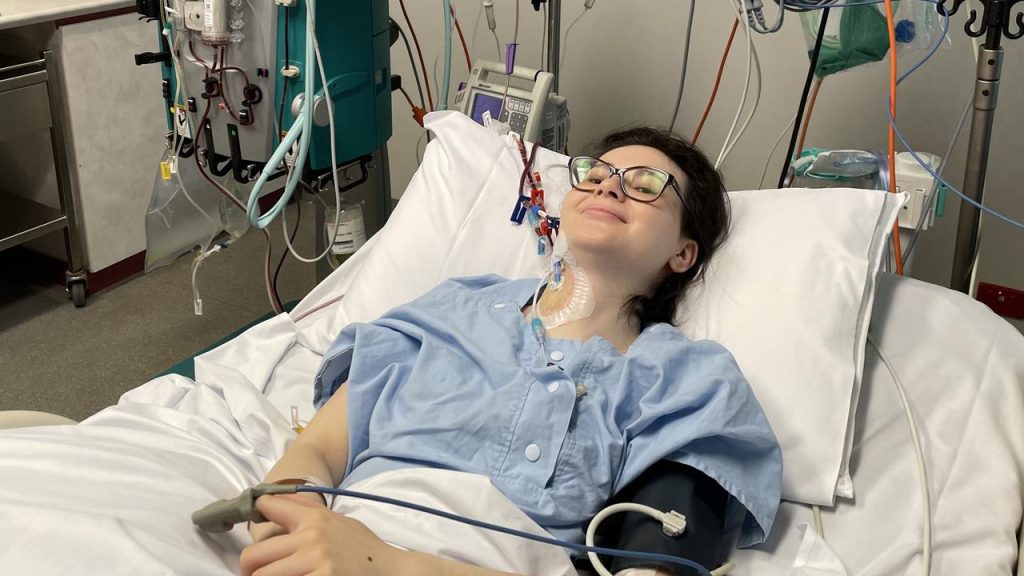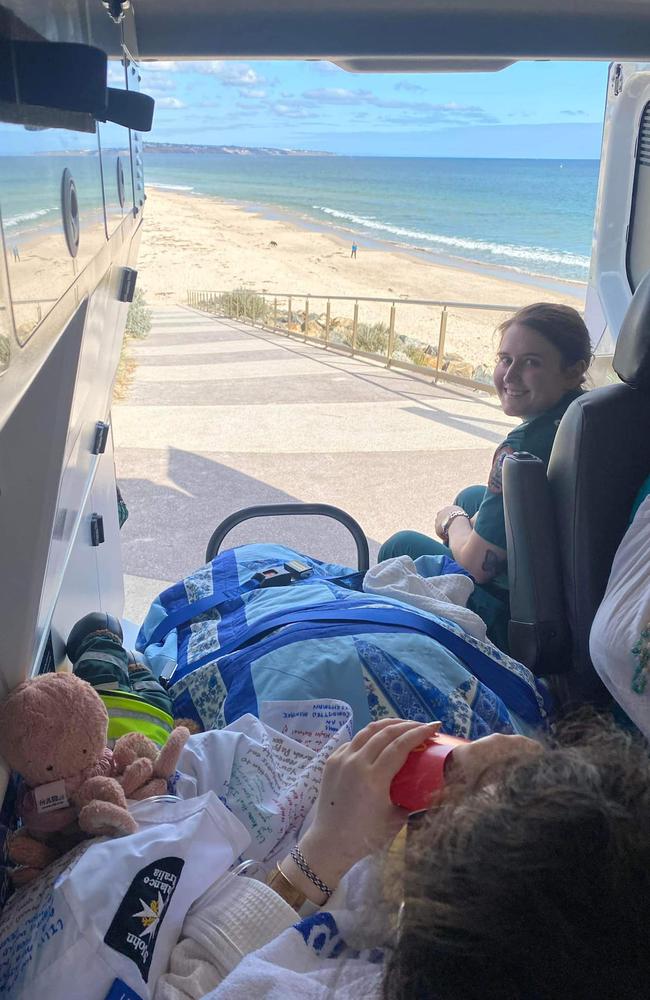Tragic Loss: 23-Year-Old Woman Chooses Euthanasia
Since this article was written, Lily Thai has passed away. Her family announced in the Adelaide Advertiser that she peacefully departed on June 21, 2023, at Laurel Hospice in Flinders Medical Centre.
The topic of assisted dying sparks heated debates globally. Some argue for the right to choose a dignified end on one’s terms, while others view it as unnatural and oppose it. Southern Australia recently enacted laws allowing voluntary assisted dying for those with terminal illnesses, giving them control over when and where they pass away. Lily Thai, a 23-year-old from South Australia, has decided to utilize this option after years of battling an incurable autoimmune disease.

Before 2017, Lily’s life was fairly typical. However, in her final year of high school, she received a diagnosis that changed everything: Ehlers-Danlos Syndrome (EDS), an autoimmune condition attacking her nervous system. This left her in constant pain, confined to a bed. She missed out on graduation and the opportunities that followed, instead finding herself in palliative care. Her father has been her primary caregiver, tending to even her basic needs. Lily endured numerous surgeries and illnesses, rendering her unable to walk or control bodily functions. Further complications emerged, including organ failure and a significant brain lesion. Since then, her days have been a struggle for survival.
During her time in palliative care, Lily formed a deep bond with another young patient, Annaliese, who also grappled with the same disease. They provided each other invaluable support on their most difficult days.

Annaliese expressed, “All I can do is brush her (Lily’s) hair or moisturize her legs. I just want her to know that I’m there and people care.”
After exhausting various treatments and surgeries, Lily’s doctors conveyed that there were limited options left. She has endured six years of relentless pain, unable to engage in life’s experiences. She’s missed out on so much and knows she’ll continue to do so. University, independent living, parties, and a family of her own—all are aspirations she understands may never materialize. The pain and suffering have become overwhelming. In light of this, she’s made the difficult decision to pursue assisted dying. Her family, while understandably finding it hard, respects her choice.
“Mum (had) to step out of the room, because she found it too much, but they respect my decision, and they’d rather not see me suffer anymore,” Lily explained.
Lily has found peace in her choice. After feeling powerless for so long, she now has a say in her fate. She’s been able to plan her funeral and burial, and she’s written heartfelt letters to her loved ones, recounting cherished memories.

“I’ll no longer have any pain, I will no longer suffer with any of these issues, and I’ll finally be free of all the suffering that I have endured for so many years,” she said. On her final day, a paramedic friend helped her fulfill her last wish: a trip to the beach. They drove her as close as possible, got her some fries, and ensured she was comfortable, facing the ocean. Instead of flowers at her funeral, Lily requested donations for palliative research to The Hospital Research Foundation.

Assisted dying, also known as assisted suicide or euthanasia, is a highly debated issue. It involves intentionally ending a person’s life with their consent, typically due to a terminal illness or unbearable suffering. In recent years, various countries, including Australia, Canada, and the United States, have legalized assisted dying. The laws aim to safeguard the patient’s autonomy and ensure the process is conducted safely and ethically.
In Australia, the state of Victoria took the pioneering step of legalizing assisted dying in 2017. This law became effective in 2019, permitting terminally ill patients with less than six months to live, who are enduring unbearable suffering, to seek assistance in ending their lives. To proceed, the patient needs evaluation by two doctors, and there is a mandatory waiting period of 10 days before the procedure can occur. Typically, the patient is responsible for administering the medication unless they are unable to do so, and a medical practitioner must be present to ensure the process is carried out correctly. It’s worth noting that South Australia also embraced this legislation in January 2023. (3)
Canada
In Canada, a significant legal milestone was reached in 2016 when assisted dying was legalized following a landmark Supreme Court ruling. This Canadian law allows patients with a “grievous and irremediable” medical condition to request assistance in ending their life. Similar to Australia, this process necessitates assessments by two doctors and entails a mandatory waiting period of at least ten days. However, unlike Australia, the patient is not obliged to self-administer the medication; a medical practitioner can perform this task on their behalf. (4)
United States
Assisted dying is now legally permitted in nine states within the United States: California, Colorado, Hawaii, Maine, Montana, New Jersey, Oregon, Vermont, and Washington. Each state has its specific set of rules and regulations, but the general criteria include the patient being terminally ill with less than six months to live and being mentally competent to make the decision. Typically, the patient must make two oral requests, at least 15 days apart, and provide a written request signed by two witnesses. Additionally, a medical practitioner must verify the patient’s diagnosis and prognosis. (5)
Dying With Dignity
Assisted dying is a complex and contentious issue, and the laws surrounding it vary significantly from country to country. In Australia, Canada, and the United States, these laws are constructed to safeguard the autonomy of patients and ensure that the process is executed safely and ethically. While debates and discussions continue on this topic, it’s evident that assisted dying is gaining acceptance and accessibility in specific regions around the world.
For Lily Thai, it signified the end of a life marked by mere survival, where each day brought pain in a hospital bed. Through this choice, she was able to spend her final day on her own terms, engage in meaningful conversations with her loved ones, and find peace in her own way. We can only hope that Lily’s friends and family will find comfort in knowing that her suffering has come to an end.



